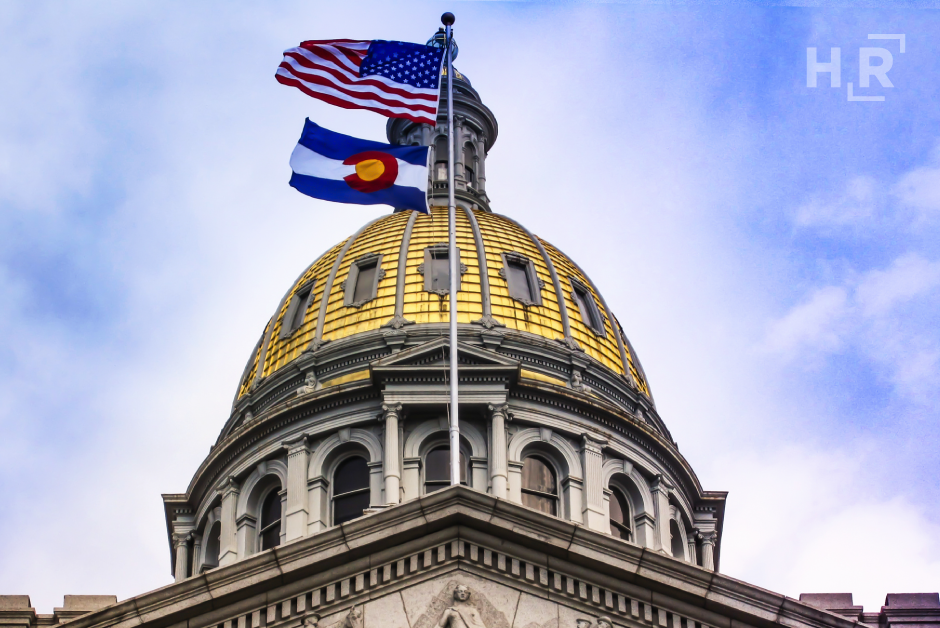Colorado’s AI Hiring Law Faces Shake-Up Ahead Of 2026
Colorado’s groundbreaking AI hiring law, the Colorado Artificial Intelligence Act (CAIA), is facing potential changes before its February 1, 2026 effective date. With a special legislative session set for August, employers using AI in hiring and background checks should prepare for possible shifts in compliance requirements, timelines, and obligations.

Colorado’s first-of-its-kind Artificial Intelligence Act (CAIA) may be about to change; or it may not. In less than six months, sweeping new compliance requirements could hit employers using AI in hiring and background checks. A special legislative session convening on August 21 will determine whether the law’s February 1, 2026 effective date stands, whether its provisions are refined, or whether lawmakers adopt a hybrid approach that alters timelines and obligations.
Governor Jared Polis has signaled openness to changes, but Senate Majority Leader Robert Rodriguez, the bill’s original sponsor, has drawn a red line: the law’s core consumer protection provisions, including notices, appeal rights, and bias mitigation, are non-negotiable. That means any amendments will likely leave most of the compliance framework intact.
Why This Matters to Employers
The CAIA applies to both developers and deployers of high-risk AI systems. For employers, a “deployer” is any business using AI to make or substantially influence consequential decisions about individuals, including hiring, promotion, and other employment actions.
In the employment context, high-risk AI can include tools such as automated resume screeners, candidate assessment platforms, and background scoring or adjudication systems that influence hiring decisions. This means many employers could need to stand up CAIA-compliant programs before their AI use is fully mature, or even while piloting tools in live hiring workflows.
That’s not an insignificant group: according to HireRight’s 2025 Global Benchmark Report, nearly one-third of North American employers plan to use AI or automated decision-making in their talent acquisition and workforce management programs. Notably, 45% said they were concerned about the impact of emerging AI regulations. In other words, the uncertainty employers feel now could quickly turn into compliance obligations next February.
If the law takes effect as written, Colorado employers using these tools will need to:
Maintain a risk management policy for AI systems, updated regularly.
Conduct annual impact assessments and additional assessments within 90 days of significant system changes.
Notify individuals when high-risk AI meaningfully influences a consequential decision and explain the AI system’s role.
Offer an appeal process allowing individuals to contest the decision.
Post public disclosures on their websites about their high-risk AI use.
Retain records of assessments and risk management documentation for at least three years after deployment.
Enforcement authority rests solely with the Colorado Attorney General. There is no private right of action, but violations are treated as unfair and deceptive trade practices. The law provides an affirmative defense for organizations that identify and correct violations through internal review or feedback processes, a structure that rewards proactive compliance.
Why the Law Is Back in Play
Governor Polis signed the CAIA with hesitation, warning it could impose “a complex compliance regime” that risks chilling innovation and deterring competition. In early 2025, lawmakers introduced a follow-up bill to narrow definitions, add exemptions for small businesses and FCRA-regulated background checks, and ease operational requirements. That effort failed in committee when consensus collapsed over changes viewed as weakening consumer protections, the same protections Rodriguez has since called untouchable.
On August 6, 2025, Governor Polis announced a special legislative session starting August 21. The official reason: closing a $1.2 billion budget shortfall caused by the federal “One Big Beautiful Bill” (H.R. 1). But among the topics on the table is the fiscal and operational impact of the CAIA on consumers, businesses, and government. Polis has suggested either delaying the effective date, potentially to 2027, or refining provisions to make the law more “workable and equitable.” Rodriguez has said he never expected the CAIA to be “over and done” in 2024 and is willing to discuss adjustments, but has made clear that consumer protection mandates will remain.
What Could Happen in the Special Session
When lawmakers return to Denver, they’ll have several choices, but the final outcome is likely to be a blend of political compromise and practical realities. A full delay of the CAIA’s effective date to 2027 is possible, especially if it’s framed as giving employers and state agencies more time to prepare. However, such a delay would need to avoid any perception of weakening consumer protections to have a chance of passing.
Another scenario is a refined law that still takes effect in 2026, but with narrower definitions of what counts as a “consequential decision” or expanded exemptions for smaller businesses. These changes could remove some lower-risk tools from the law’s scope, but most AI-assisted hiring systems would still be covered.
Lawmakers could also phase in compliance, delaying certain provisions while requiring partial adherence next February. That approach would give employers breathing room on the most complex requirements, but still demand that they stand up key elements, like consumer notices and appeals, on schedule.
And it’s entirely possible that the legislature will leave the statute unchanged and rely on the Attorney General’s rulemaking process to clarify how it will be applied. That would place the onus squarely on employers to interpret the law conservatively until formal guidance is issued.
What’s clear is that Rodriguez’s position on preserving the CAIA’s consumer protection mandates will potentially influence every outcome. Even in the most business-friendly version of this law, employers will still likely need to prepare for transparency, disclosure, and bias mitigation requirements to remain at its core.
What Employers Should Do Now
With less than six months until the CAIA’s scheduled effective date, employers should shift from awareness to execution. The goal isn’t necessarily to build every element of a compliance program today, it’s to be positioned to move quickly once the legislature’s decision is known.
Start by identifying your highest-risk areas where AI meaningfully influences hiring or promotion decisions. These systems should be first in line for review and potential modification.
Secure vendor cooperation early. Much of the CAIA’s compliance burden depends on technical details only your vendors can provide. Opening those conversations now will avoid delays if full compliance is required in 2026.
Map out a phased compliance plan. Structure your work so the most complex elements, like system audits and detailed disclosures, can be finalized quickly if the February deadline holds, but without overcommitting resources if definitions or timelines shift.
Finally, designate an internal lead for AI compliance to coordinate risk assessments, documentation, and vendor engagement. Centralizing responsibility will make your program more agile if lawmakers create a phased rollout or narrow the scope of the law.
Bottom Line for Employers
While the debate in Denver will focus on when the law takes effect and how it’s enforced, the consumer protection mandates are very likely to remain. Employers should act now to build compliance programs that can withstand a February 2026 launch but keep them agile enough to adjust to new timelines or scope changes.
In other words, act as if the clock is still ticking toward February 2026, because it probably is.
Release Date: August 26, 2025

HireRight
HireRight is a leading provider of on-demand employment background checks, drug and health screening, and electronic Form I-9 and E-Verify solutions that help employers automate, manage and control background screening and related programs.